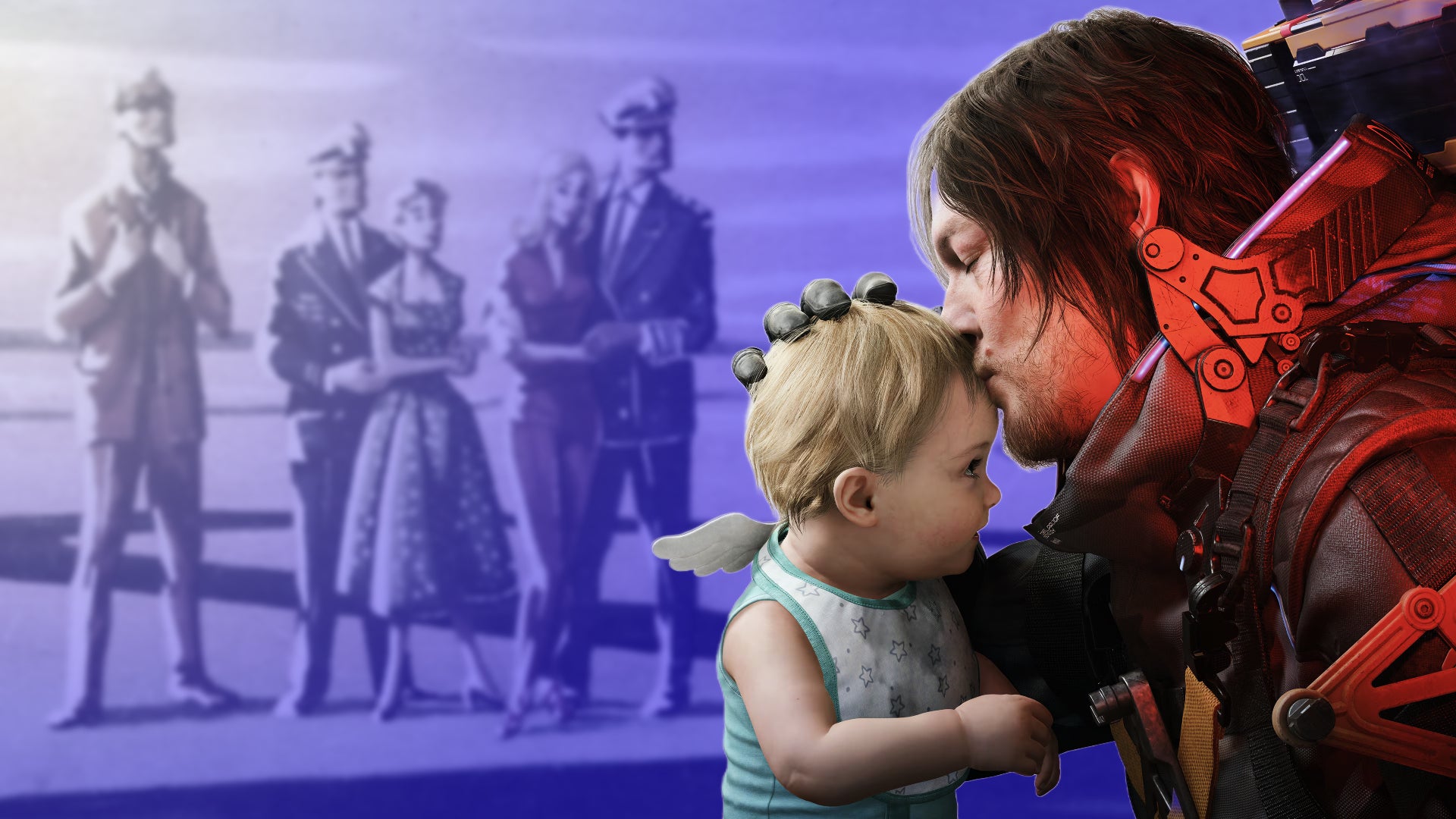Be warned: This piece contains spoilers for Death Stranding 2: On the Beach.
A sad irony pervades Death Stranding and its sequel: each world is achingly pretty yet hardly anyone, except for stoic courier Sam Porter Bridges (and a bunch of paramilitary goons) is actually above ground to enjoy the view. In the first game, Sam hikes through a pristine, post-catastrophe U.S. It is covered in soaking-wet moss and rivers gushing as you imagine they might have at the dawn of time. The Australia of Death Stranding 2 is similarly glorious, a land of Mars-red rock formations stippled with salmon sunsets and daubs of vivid-green new growth. You can direct Sam to rest, at which point he loosens the straps of his heavy pack, exhaling with relief. For a fleeting moment, he’s able to soak up the splendour before him
This beautiful yet eerily absent version of Australia has a parallel: that found in Nevil Shute’s 1957 novel, On The Beach, with which the game shares its title. Writer-director Hiideo Kojima is a confirmed fan of both the book and its 1959 movie adaptation, starring Gregory Peck and Ava Gardner. The joint title indicates more than the kind of affectionate homage Kojima has become renowned for. Both game and book are set in Australia; both prominently feature submarines; both convey an acute fear about extinction events; both centre on the fate of children. Most importantly, I think, each is a work of fiction about attempting to forge connections with the last, siloed people in a world that has become, to a large degree, completely inhospitable, yet which has lost none of its eye-widening luster.
In Shute’s novel, planet Earth has suffered a cataclysmic nuclear war at the hands of a conflict between Russia and China. The few places that emerged unscathed – Uruguay, South Africa, and Australia – don’t have long left, six months by the scientists’ best estimates. A vast shimmering cloud of deadly radiation is making its way from the northern hemisphere, where the conflict primarily took place, to the south, carried along on a gigantic, slow-moving breeze. We follow a group of justifiably pissed-off Melburnians who await their slow, horrible death from radiation poisoning in various ways. Some party, others tend to their gardens. With all of their deaths, the last major outpost of humanity will fall silent.
